|
|
|
|
|
|
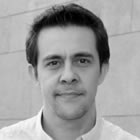 |
| KEYNOTE |
|
 |
| . |
|
|
Artur Ciesielski
Université de Strasbourg, France
Keynote – Plenary Session
Artur Ciesielski obtained his M.Sc. degree from Adam Mickiewicz University, followed by his PhD degree from the University of Strasbourg (P. Samorì). In 2016, he became a research associate at the Institut de Science et d'Ingénierie Supramoléculaires (ISIS) and Centre National de la Recherche Scientifique (CNRS). In 2018 he has been appointed as visiting professor at the Centre for Advanced Technologies of Adam Mickiewicz University in Poznań (Poland). His research interests include the design of supramolecular systems, self-assembly of nanopatterns, and production and chemical modification of 2D materials by exploiting supramolecular approaches and their exportation in (nano)devices including sensing and energy storage/conversion. He has been awarded twice with the prestigious ‘Outstanding Pole in France award’ in science (2015 and 2019). He has recently become a member of the Young Academy of Europe (YAE).
|
|
|
|
|
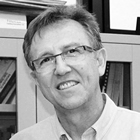 |
| KEYNOTE |
|
 |
| . |
|
|
Eugenio Coronado
ICMOL - Universidad de Valencia, Spain
Keynote – Plenary Session
Eugenio Coronado is Professor of Inorganic Chemistry at the Universidad de Valencia and Director of the Institute for Molecular Science (ICMol) and of the European Institute of Molecular Magnetism (EIMM). Expert in Molecular Magnetism, his recent research interests lie in the areas of Molecular Spintronics, quantum computing and 2D materials. In this last topic his research focuses on the design of 2D molecular magnets and hybrid molecular/2D heterostructures combining functional molecules with 2D superconductors and magnets, as well as in the use of these materials for applications in spintronics. To develop these research lines he has been financed by the European Research Council (ERC) with the Advanced grants SPINMOL and MOL-2D.
|
|
|
|
|
 |
| INVITED |
|
 |
| . |
|
|
Maria Escudero Escribano
University of Copenhagen, Denmark
Invited – Plenary Session
Marίa Escudero Escribano is an Associate Professor of Chemistry at the University of Copenhagen. She graduated in Chemical Engineering from the University of Extremadura and obtained her Ph.D. in Chemistry from the Autonomous University of Madrid (2011). She then started her postdoctoral research at the Technical University of Denmark (2012-2015) and was a 'DFF: Sapere Aude Research Talent' postdoctoral fellow at Stanford University (2015-2017), before moving to the University of Copenhagen as a Tenure-track Assistant Professor in March 2017. She got promoted to Associate Professor in February 2021. María was awarded a ‘Villum Young Investigator’ Grant from the Villum Foundation in 2018. She has received numerous awards at a national and international levels, including the European Young Chemist Award (Gold Medal) 2016, the Princess of Girona Scientific Research Award 2018, the Electrochemical Society Energy Technology Division Young Investigator Award 2018 and the Clara Immerwahr Award 2019.
|
|
|
|
|
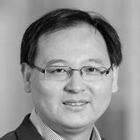 |
| KEYNOTE |
|
 |
| . |
|
|
Xinliang Feng
TU Dresden, Germany
Keynote – Plenary Session
Prof. Feng is a full professor and the head of the Chair of Molecular Functional Materials at Technische Universität Dresden. He has published more than 510 research articles which have attracted more than 62700 citations with H-index of 119 (Google Scholar). He has been awarded several prestigious prizes such as IUPAC Prize for Young Chemists (2009), European Research Council (ERC) Starting Grant Award (2012), Journal of Materials Chemistry Lectureship Award (2013), ChemComm Emerging Investigator Lectureship (2014), Fellow of the Royal Society of Chemistry (FRSC, 2014), Highly Cited Researcher (Thomson Reuters, 2014-2019), Small Young Innovator Award (2017), Hamburg Science Award (2017), EU-40 Materials Prize (2018), ERC Consolidator Grant Award (2018). He is a member of the European Academy of Sciences (2019) and member of the Academia Europaea (2019). He is an Advisory Board Member for Advanced Materials, Chemical Science, Journal of Materials Chemistry A, ChemNanoMat, Energy Storage Materials, Small Methods, Chemistry -An Asian Journal, Trends in Chemistry, etc. He is the Head of ESF Young Research Group "Graphene Center Dresden", Working Package Leader of WP Functional Foams & Coatings for European Commission’s pilot project “Graphene Flagship”, and spokesperson for the DFG Collaborative Research Center for the Chemistry of Synthetic 2D Materials.
|
|
|
|
|
 |
| INVITED |
|
 |
| . |
|
|
Luisa Maria Fraga
, Spain
Invited – Plenary Session
PhD in Chemistry (Santiago de Compostela University).
My 30 years of profesional carreer in the industry sector has allowed me to grow in several positions and knowledge areas, mainly focused to the design and development of polymeric materials and nanomaterials and their applications in the energy sector. In parallel, I have played different roles in activities/areas related to Technology Strategy, Open Innovation, Experimental Areas Management and Technical Advisory in Advanced Materials and Nanotechnology.
Repsol representative, until Septembre 2020, in European and Spanish organizations related to Chemistry, Materials and Nanotechnology such as Advanced Materials Experts Group (Suschem Europe), Suschem España and FEIQUE Presidency, Nanofutures, Value4Nano, Nanospain with relevant contribution to SIRA 2020.
Coauthor of different national and international publications and more than 40 granted patents.
|
|
|
|
|
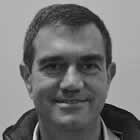 |
| KEYNOTE |
|
 |
| . |
|
|
Hermenegildo García Gómez
ITQ/UPV-CSIC, Spain
Keynote – Plenary Session
Hermenegildo García Gómez (Canals 1957) studied Chemistry at the University of Valencia (extraordinary degree award, 1979) and did his PhD at the Organic Chemistry Department of the Faculty of Pharmacy of Valencia under the supervision of Professor Miguel A. Miranda Alonso in the field of Preparative Organic Photochemistry obtaining his PhD degree in 1983 (Extraordinary Thesis Award). In 1983 he joined the Chemistry department of the Universidad Politécnica de Valencia chaired by Professor Jaime Primo Millo being Full Professor in 1996. He joined the Institute of Chemical Technology (ITQ) since its foundation in 1991. He did a postdoctoral stay at the University of Reading with Professor Andrew Gilbert (1987) and many other sabbatical leaves at the University of Ottawa joining the Laser Flash Photolysis group of Professor J. C. Scaiano with whom he has maintained a fluid collaboration since 1992.
|
|
|
|
|
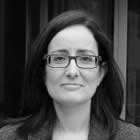 |
| INVITED |
|
 |
| . |
|
|
Maria Gimenez Lopez
Universidad de Santiago de Compostela, Spain
Invited – Plenary Session
María Giménez is team leader at the CiQUS and Honorary Associate Professor at the University of Nottingham. After receiving her PhD at the University of Valencia, she moved to the University of Nottingham where she became Assistant Professor in Materials Chemistry in 2015. In 2018 she joined the CiQUS with a Ramon and Cajal contract, launching her project ERC StG. During her career, Maria has been granted different fellowships and awards: Marie Curie Intra-European Research Fellowship, Royal Society Research Fellowship, ERC StG-NANOCOMP and ERC PoC-ZABCAT. In 2012 she received an Emerging Investigator Award by the Spanish Royal Society of Chemistry, in 2017 she became Emerging Talent SRUK/CERU Award finalist and in 2018 she was selected by the Spanish Royal Society of Chemistry for theYoung Investigator Workshop 2018 (YIW2018).
|
|
|
|
|
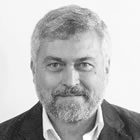 |
| KEYNOTE |
|
 |
| . |
|
|
Pedro Gómez-Romero
ICN2 (CSIC-BIST), Spain
Keynote – Plenary Session
Prof. Pedro Gómez-Romero (FRSC) CSIC Full Professor and Leader of the group NEO-Energy at ICN2. Bachelor and Master in Chemistry, Universitat de Valencia (Spain). PhD in Chemistry (with distinction) Georgetown University (USA) 1987. CSIC researcher at ICMAB from 1990 to 2007, spending a sabbatical year as a NATO Senior Research Fellow at the National Renewable Energy Laboratory (USA) in 1998-99. In 2007 he moved to CIN2, then ICN2 since 2013, as leader of the Novel Energy-Oriented Materials (NEO-Energy) Group, heading up projects on hybrid organic-inorganic nanostructures, nanocomposite materials for energy storage and conversion, with emphasis on batteries, supercapacitors and hybrid devices. Author of more than 200 publications and 6 patents (> 10000 citations, H index 57), prof. Gomez-Romero has played a seminal role in developing energy storage research in the area of Barcelona (Spain) and pioneered the use of polyoxometalates as energy storing materials at an international level. Fellow of the Royal Society of Chemistry since 2014, CIDETEC Award to research on electrochemistry in 2017 (for work developed during 2013-16), cofounder of the spin-off Earthdas, prof. Gomez-Romero is also very active in social communication of science and has authored four award-wining popular science books, as well as two technical books (Functional Hybrid Materials, Wiley-VCH, 2004) (Metal Oxides in Supercapacitors, Elsevier, 2017).
|
|
|
|
|
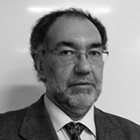 |
| INVITED |
|
 |
| . |
|
|
Bernardo Herradón
IQOG-CSIC, Spain
Invited – Plenary Session
Bernardo Herradón studied Chemistry at the Complutense University of Madrid (UCM), being graduate and doctor from this university. He is currently a Scientific Researcher at the Institute of General Organic Chemistry (IQOG) of the CSIC. He has been Director of IQOG between 2006 and 2010. He has researched at the University of Alcalá, ETH-Zürich and Stanford University.
His recent research topics cover a wide range of chemistry. His research has been reflected in about 180 publications: nearly 100 on his original research and about 80 articles in specialized journals on history of science, education, outreach and science policy. He has supervised seven doctoral theses, principal investigator in 28 research projects, and seven patents extended as PCTs, European patents and USA (most of them) as well as to other 11 countries, amounting for 32 overall patent applications. One of these patents has led to the creation of a company.
Since 2006 he has been involved in scientific dissemination tasks, having participated in more than 1200 activities
ORCID ID: https://orcid.org/0000-0003-1179-884X
Web of Science ResearcherID: K-5722-2014
|
|
|
|
|
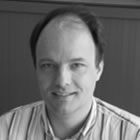 |
| KEYNOTE |
|
 |
| . |
|
|
Jurriaan Huskens
University of Twente, The Netherlands
Keynote – Plenary Session
Jurriaan Huskens (1968) obtained his PhD (1994) at the Delft University of Technology with Herman van Bekkum. After postdoctoral stays with Dean Sherry and Manfred Reetz, he became assistant professor with David Reinhoudt at the University of Twente in 1998, and full professor in 2005. He received the Unilever Research Award (1990), a Marie Curie fellowship (1997), the Gold Medal 2007 of the Royal Netherlands Chemical Society, and a Fellowship from the Institute of Advanced Study, Durham University, UK (2019). Present research interests encompass: supramolecular chemistry at interfaces, supramolecular materials, multivalency, nanofabrication, and solar fuels. He is (co)author of over 400 refereed research papers and five patents.
|
|
|
|
|
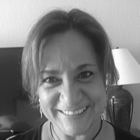 |
| KEYNOTE |
|
 |
| . |
|
|
Monica Lira Cantu
ICN2, Spain
Keynote – Plenary Session
After completing a Bachelor’s degree in Chemistry in 1992, Dr Monica Lira-Cantu obtained her Master’s and PhD degrees in Materials Science at the Institut de Ciència de Materials de Barcelona (ICMAB) and the Universitat Autònoma de Barcelona in 1995 and 1997, respectively. She worked as a postdoctoral fellow with Schneider Electric and ICMAB until 1998. From 1999 to 2001 she was a permanent senior staff chemist at ExxonMobil Research & Engineering (formerly Mobil Technology Co) in New Jersey (USA), establishing a group on energy-related applications
|
|
|
|
|
 |
| INVITED |
|
 |
| . |
|
|
Andreu Llobera
Microliquid, Spain
Invited – Plenary Session
PhD in Physics in 2002. Had of Innovation at Microliquid since 2020. between 2016 and 2020 he was the head of disruptive technologies at Carl Zeiss Vision. He has participated in several research projects financed by the Spanish Government and by the European Community both as coordinator and as consortium member. He has co-authored more than 145 published articles, with a total of +1750 citations and an h factor of 23. He holds 17 patents and he has contributed with +140 to international conferences. His research activities include photonic lab-on-a-chip, integrated optics devices and platforms and related materials, processes and technologies, Dr. Llobera was awarded a Starting Grant in 2008 and a Proof-of-concept in 2015, both from the European Research Council.
|
|
|
|
|
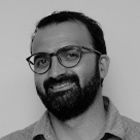 |
| KEYNOTE |
|
 |
| . |
|
|
Fernando Lopez
CIC Biomagune, Spain
Keynote – Plenary Session
Group leader of Heterogeneous biocatalysis laboratory at CIC biomaGUNE.
Research line: Assembly of multi-enzyme systems in advanced materials.
Previous research experience as ARAID Senior researcher at University of Zaragoza and other public and private research centers in USA, Netherlands and Spain.
Doctor in Molecular Biology (2007) from Universidad Autonoma de Madrid, Spain.
|
|
|
|
|
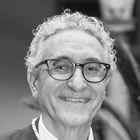 |
| KEYNOTE |
|
 |
| . |
|
|
Arturo López-Quintela
University of Santiago de Compostela, Spain
Keynote – Plenary Session
Full Professor of Physical Chemistry at the University of Santiago de Compostela (USC, Spain). Visiting Professor at MPI für Metallforschung, Germany; Centre for Magnetic Recording Research, USA; Yokohama Natl. Univ. Japan and Research Centre for Materials Science, Nagoya, Japan. Co-founder and Chief Scientific Advisor since 2005 of the company NANOGAP (www.nanogap.es), dedicated to the production of nanomaterials and metal clusters. Since 2019 co-founder of Arjuna Therapeutics (www.arjunatherapeutics.com) to explore medical applications of clusters. He has published more than 300 publications and is co-author of 26 international patents under exploitation. His current research interest is the synthesis of metal clusters by soft chemical techniques and their application in catalysis
|
|
|
|
|
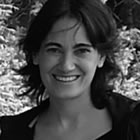 |
| INVITED |
|
 |
| . |
|
|
Marta Mas-Torrent
ICMAB-CSIC, Spain
Invited – Plenary Session
Dr. Marta Mas-Torrent (PhD 2002) is currently leading the group of “Molecular Electronics and Devices” at Institut de Ciència de Materials (ICMAB-CSIC) in Barcelona (Spain). Her work is focused on the design and synthesis/preparation of new functional molecular materials for their application in organic/molecular electronic devices. Particularly, her areas of interest include the synthesis of novel functional molecules, surface self-assembly, crystal engineering, molecular switches, organic field-effect transistors (OFETs), charge transport and organic-based (bio)-sensors. In 2012 Dr. Mas-Torrent was awarded with an ERC StG project and later on an ERCPoC project. She is co-author of around 170 publications and inventor of 7 patents. She received the 2013 Oliver Kahn International Award for her contributions in the field of materials science and the Prize of Young Researcher 2006 of the Spanish Royal Society of Chemistry (RSEQ).
|
|
|
|
|
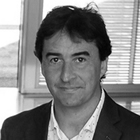 |
| KEYNOTE |
|
 |
| . |
|
|
David Mecerreyes
POLYMAT, Spain
Keynote – Plenary Session
PhD in polymer chemistry by the University of Liege (Belgium) in 1998. Then he carried out a post-doctoral stay at IBM Almaden Research Center and Stanford University in California. Back to Spain he worked for 10 years in CIDETEC. In 2011 he became Ikerbasque Research Professor at POLYMAT (www.polymat.eu), University of the Basque Country. Since then he coordinates the Innovative Polymers Group and acts as scientific vice-director of POLYMAT. His actual research interests include the synthesis of innovative polymers for energy and bioelectronics. In particular his team is dedicated to polymer chemistry of innovative redox polymers, poly(ionic liquid)s, iongels and conducting polymers. He is co-author of more than 320 scientific articles. Co-founder of the start-up company POLYKEY.
|
|
|
|
|
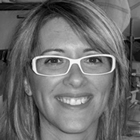 |
| INVITED |
|
 |
| . |
|
|
Manuela Melucci
ISOF-CNR, Italy
Invited – Plenary Session
Research Scientist at ISOF-CNR (Bologna, Italy), Ph.D. in Chemistry (2005, Alma Mater Studiorum). Group Leader of the Laboratory of synthesis of Advanced Materials (ISOF) aiming at the design and synthesis of functional organic materials and graphene composites for water purification and biomedical filtration applications. Coordinator of EU Flagera 2019 Project GO-FOR-WATER and Deputy Leader of the Graphene Flagship Spearhead project GRAPHIL. PI of National projects (Nano-Carbo-Cat, MEDFil, MEDAIR) and of several industrial research contracts (i.e. Tetra Pak Packaging Solutions S.P.A., Medica S.P.A). Author of over 90 papers (perspectives, review, book chapters, H-index 27 WoS) and inventor of 11 international patents on optoelectronic materials and porous composites in partnerships with leading industries in those fields.
|
|
|
|
|
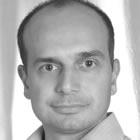 |
| KEYNOTE |
|
 |
| . |
|
|
Vincenzo Palermo
Chalmer University of Technology, Sweden
Keynote – Plenary Session
Vincenzo Palermo is the director of the CNR Institute for Organic Synthesis and Photoreactivity (ISOF) located in Bologna, Italy. He is also professor of Chalmers University of Technology (Sweden) and vice-director of the Graphene Flagship, one of the largest research projects ever launched in Europe.
He has published >160 scientific articles on international journals in chemistry and materials science collaborating with key industrial partners in Europe (Airbus, FCA, Leonardo, BASF, Nokia, STMicroelectronics etc.).
He won the Lecturer Award for Excellence of the Federation of European Materials Societies (FEMS), the Research Award of the Italian Society of Chemistry (SCI) and the Science dissemination awards of the Italian Book Association.
|
|
|
|
|
 |
| KEYNOTE |
|
 |
| . |
|
|
Emilio Palomares
ICIQ, Spain
Keynote – Plenary Session
Professor Palomares joined ICIQ in 2006 to become Group Leader of a research group devoted to Molecular Solar Cells.
In 2009, he was awarded with an ICREA research Professorship through a competitive procedure. Prof. Palomares has co-authored more than 200 peer-reviewed scientific papers in molecular solar cells including Dye Solar Cells, Organic Solar Cells and Perovskite Solar Cells. His research group has expertise in the synthesis of materials and molecules with optical and electrical properties, as well as the characterization of interfacial charge transfer reactions in complete devices. Nowadays, of particular interest for the group is to study the interfacial charge transfer reactions versus device efficiency in perovskite solar cells and LED’s and the film morphology versus device efficiency in organic solar cells.
Prof. Palomares has been PI (Principal Investigator) in several National research projects and 1 EU project. In 2009 Prof. Palomares was awarded by the European Research Council with an ERC Starting Grant (PolyDot).
|
|
|
|
|
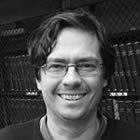 |
| KEYNOTE |
|
 |
| . |
|
|
Leonard Prins
Università degli Studi di Padova, Italy
Keynote – Plenary Session
Leonard Prins (1974) is professor in organic chemistry at the University of Padova. He obtained his PhD in 2001 from the University of Twente and carried out postdoctoral research at Caltech and the University of Padova. In 2009 he received the Ciamician medal from the Organic Division of the Italian Chemical Society. His current research interests are systems chemistry, focusing on non‐equilibrium self‐assembly and chemical reactivity.
|
|
|
|
|
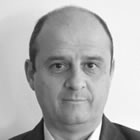 |
| KEYNOTE |
|
 |
| . |
|
|
Fernando Rey
ITQ-UPV, Spain
Keynote – Plenary Session
Fernando Rey is Research Professor at the CSIC and the director of the Institute of Chemical Technology, ITQ, in Valencia (Spain). His research interest is focussed in the synthesis and characterization of new porous inorganic solid materials, mostly zeolites, with tailored properties for their use in industrial applications, principally in catalysis and adsorption processes. He is co-author of more than 170 articles in high impact scientific journals, numerous presentations in congresses and currently his ‘h-index’ is 59. Also, he appears as co-inventor in more than 40 patents related to the synthesis of new porous materials and their application in different industrial processes. Some of these patents have been trasnfered to industries.
|
|
|
|
|
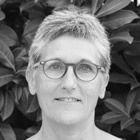 |
| KEYNOTE |
|
 |
| . |
|
|
Anna Roig
ICMAB, Spain
Keynote – Plenary Session
Anna Roig graduated in Physics and received a Ph.D. in Materials Science at the UAB while complementing her education at the KTH in Stockholm and Northeastern University in Boston. At present, she is a Research Professor at the Materials Science Institute of Barcelona where she leads the Nanoparticles and Nanocomposites Group (https://nn.icmab.es/). The research program of her group lays at the interface between materials science, nanotechnology and biochemistry and focuses on the rational synthesis of nanoparticles and nanocomposites for healthcare applications. Specifically, the group has developed nanomaterials as drug delivery carriers, contrast agents or bio-based hydrogels to treat external and internal wounds. She has a good tracking record to actively collaborate with complementary groups, clinicians and doctors with the drive to push the final applicability of those materials
|
|
|
|
|
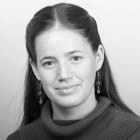 |
| INVITED |
|
 |
| . |
|
|
Seraphine Wegner
WWU Munster, Germany
Invited – Plenary Session
Prof. Seraphine Wegner is a full professor at the Institute of Physiological Chemistry and Pathobiochemistry at the University of Münster, Germany. She obtained her bachelor in chemistry in 2005 at the Middle East Technical University, Ankara, Turkey and her PhD in chemistry in 2010 at the University of Chicago, USA. In 2011, she started as an Alexander von Humboldt postdoctoral researcher under the guidance of Prof. Joachim Spatz at the University of Heidelberg and Max Planck Institute for Intelligent Systems, Germany. In 2016, she started her independent research group at the Max Planck Institute for Polymer Research, Germany, which is part of MaxSynBio, the network for bottom-up synthetic biology of the Max Planck Society. She has been awarded several prestigious prizes such Eliteprogramm Fellowship of the Baden-Württemberg Foundation (2014), the Fellowship of the Daimler und Benz Foundation (2016) and the ERC Starting Grant (2017).
|
|
|
|
|
| |
|
|
|
|
|
|
|
© Phantoms Foundation 2020 |
|
|
|